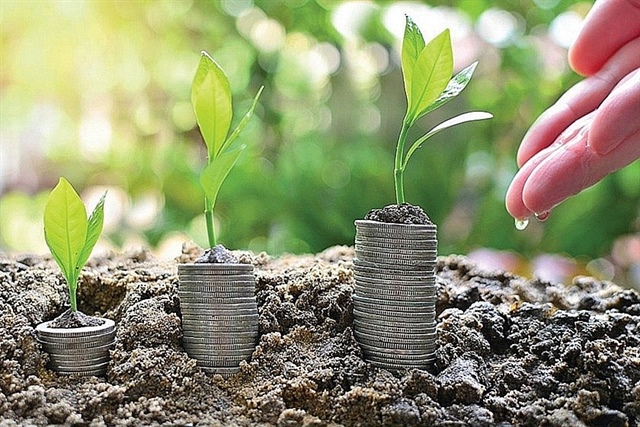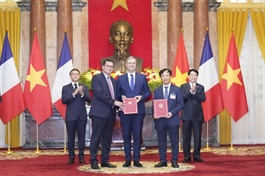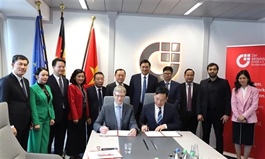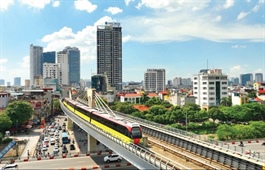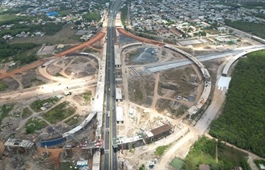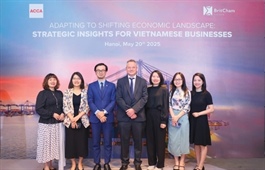Vietnam steps up green finance race with regional investments
Vietnam steps up green finance race with regional investments
As Southeast Asia’s green economy accelerates, Vietnam is moving to catch up, backed by new legislation, rising investor focus, and a clearer national direction.
Deputy Governor of the State Bank of Vietnam Pham Thanh Ha confirmed on May 21 that 2024 saw a record-high 33 institutions publish standalone sustainability reports. In addition, most credit institutions have integrated environmental, social, and governance (ESG) content into their annual reports, with more than a dozen banks issuing independent ESG disclosures.
Notably, in the first five months of this year alone, six more commercial banks have released standalone sustainability reports.
A few days previously, the National Assembly on passed Resolution No.198/2025/QH15, marking a pivotal milestone in private sector development and a green economy.
Chapter IV of the resolution introduces financial and credit support mechanisms, including a 2 per cent interest rate subsidy for private enterprises, household businesses, and individual entrepreneurs engaged in circular economy projects, green initiatives, or activities aligned with ESG standards.
Financial experts believe this policy not only provides much-needed legal clarity, but also lays the foundation for the State Bank of Vietnam to actively support liquidity for commercial banks supplying green credit.
“Sustainable finance is fast becoming a cornerstone of banking innovation across Asia, and Vietnam cannot afford to fall behind,” said Cassandra Goh, managing director of Silverlake Axis. “The country has pledged to reach net-zero emissions by 2050, but progress in green finance remains slow. As of now, green credit accounts for just 4.2 per cent of total bank lending. There is noticeable, albeit slow, momentum of change."
With regional neighbours like Singapore and Indonesia having introduced national green taxonomies, there is impetus for Vietnam to follow suit; thus, the nation is expected to finalise its own version by 2025, Goh added.
For venture capital players, particularly in the startup ecosystem, ESG is no longer optional. “From a fund perspective, we see ESG not just as a risk management tool but as a value creation lever,” said Vy Le, CEO of Do Ventures. “We apply a structured framework across the investment lifecycle, screening for alignment during due diligence, including ESG clauses in our term sheets, and actively supporting portfolio companies in setting and tracking ESG key performance indicators post-investment.”
Amid global macroeconomic uncertainty, Southeast Asian economies are re-evaluating priorities and opportunities in the green economy. According to the Southeast Asia Green Economy 2025 report released on May 6, a systems-based approach, one that removes systemic barriers, fosters multi-stakeholder collaboration, and focuses on scalable, high-impact solutions, could boost the region’s GDP by $120 billion, create 900,000 jobs, and deliver half of the required emission reductions by 2030.
“Conventional wisdom today suggests the new macro environment will slow progress in the green economy. However, Southeast Asia, and wider Asia-Pacific, may see an acceleration as governments, companies and investors pivot priorities,” said Dale Hardcastle, director of the Global Sustainability Innovation Centre at Bain & Company.
“By focusing on scalable, high impact systems-level solutions, Southeast Asia can rewrite the green economy playbook and turn current challenges into opportunities. The need now is to drive two key outcomes in parallel, significant emissions reduction and sustained economic growth, ensuring that the region not only meets its climate goals but also builds long-term resilience and prosperity.”
|
One of the potential game changers lies in carbon markets. Anshari Rahman, director of Policy and Insights at GenZero, argued that while carbon markets in Southeast Asia are gaining traction, further policy clarity is needed to unlock their full climate and economic potential.
“Southeast Asia’s carbon markets are gaining momentum, but we can do more to unlock their full climate and economic potential," Rahman said. "Scaling high-integrity credit supply, backed by robust, predictable policy frameworks and enabling infrastructure, is essential to attract investment and drive demand. To deliver lasting social and economic gains, supply must also meet international benchmarks, where global demand is headed.”
Nguyen Thuy Hanh, head of Corporate and Investment Banking at Standard Chartered Vietnam, said that to accelerate these solutions in the real economy, this can be addressed through augmentation by enabling solutions, foremost among them is climate and transition finance.
“Policy and market-based solutions help unlock larger flows of domestic and international capital include coordination at all levels on sustainable finance and climate risk management policies such as aligning Southeast Asian taxonomies, expanding public co-financing and risk-sharing mechanisms, and support capacity building and technical expertise,” she said.
- 11:10 27/05/2025


